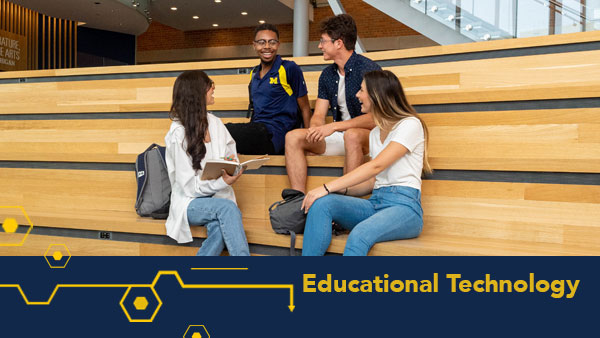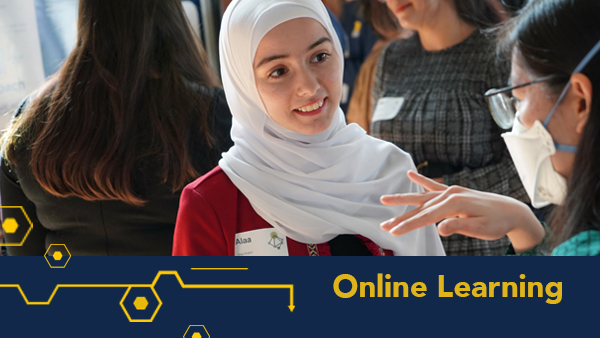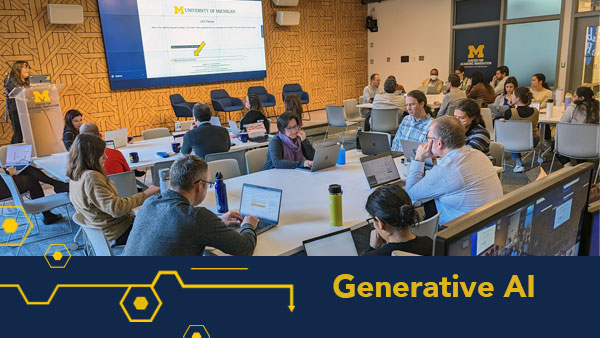Barry Fishman, Faculty Innovator-in-Residence
@barryfishman
The strength of a research university—like the University of Michigan—lies in its broad resources and deep expertise across multiple areas of inquiry. This breadth and depth powers the research university’s ability to create societal value; to serve as an engine for discovery and knowledge creation. The work of a great research university has the power to change the world, and as an institution of teaching and learning, we are at our best when our students are able to participate in this kind of work. But how often is this the case for undergraduate students? How well does a typical undergraduate education at Michigan connect with the opportunities for learning represented by the broader institution? In this post, I introduce the “Big Idea,” an effort within the Office of Academic Innovation to reinvent undergraduate education at Michigan.
What’s the Big Idea?
The Big Idea is a project to explore and design a new degree-granting undergraduate program at Michigan. Research universities like Michigan excel at disciplinary scholarship and doctoral training. This training often takes the form of close mentorships between faculty and graduate students, occurs in cohorts, and exists in the context of ongoing scholarship with relevance to the field of inquiry. Undergraduate education at Michigan is, however, an entirely different enterprise from the high-contact mentorship typical of doctoral education. In contrast to small doctoral cohorts, research universities enroll large numbers of undergraduates for whom education is primarily organized around lecture-based experiences, with learning progressions focused primarily on classroom rather than lab- or practice-based experiences. In terms of teaching and learning, we intuitively understand that large lecture courses are not as good as mentoring or apprenticeship-based learning experiences, but they are necessary (or so we might think) to support learning at scale, and to the institution, they are essential to cross-subsidize expensive and intensive graduate training. Can we do better? (Spoiler alert: yes!)
The Big Idea creates an undergraduate program that realigns the resources within the U-M to better enable students to be active participants in the broader scholarly life of a research university, and at the same time enhance the institution’s capacity to pursue engaged scholarship that advances knowledge and practice. This is especially important in a world where the most challenging problems are often ambiguous, and progress requires knowledge and skills from multiple domains. It is also important at a time when the public(s) traditionally served by a public research university increasingly question the value of the institution to their everyday life and future prosperity. The “Big Idea” proposes to advance the educational, research and public service mission of the University of Michigan by:
- Offering an undergraduate experience that has real-world problem solving and engaged scholarship at its core; situating undergraduate education at the heart of the scholarly enterprise;
- Enhancing collaboration across disciplinary boundaries; and
- Amplifying the relationship of a public university to its constituencies through projects that work in collaborative partnerships with a range of communities and sectors to advance progress on significant problems;
To accomplish these goals, we envision a program that is unconstrained by some of the most common operating assumptions in current higher education: grades, credit hours, and disciplinary majors. In future blog posts, we’ll share more information about how our designs for the Big Idea are coming together, and how the Big Idea advances our work in these areas.
How do we bring the Big Idea to life? A working group that includes faculty and staff from across the university meets regularly to discuss and define key elements of the program: learning goals, learning experience, assessment, and admissions. We’ve also launched a speaker series that we’re calling “AIM:TRUE,” or Academic Innovation at Michigan: Transforming Residential Undergraduate Education. These talks are designed to provoke our thinking about undergraduate education and inform the instantiation of the Big Idea. Stay tuned for future posts about the AIM:TRUE series of talks, and posts related to our progress on the Big Idea along with opportunities for you to get involved.


